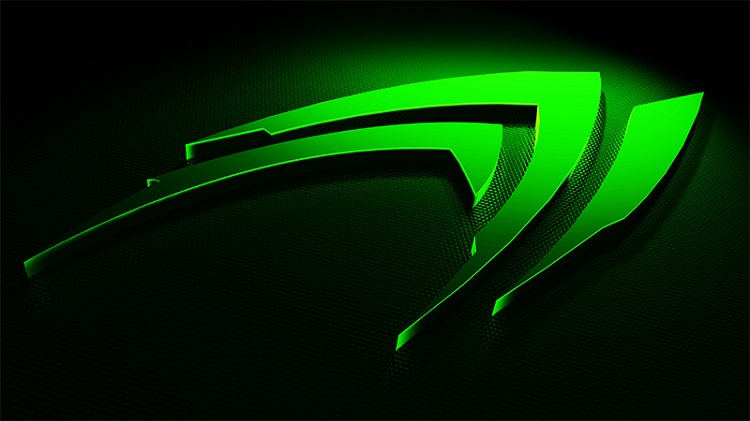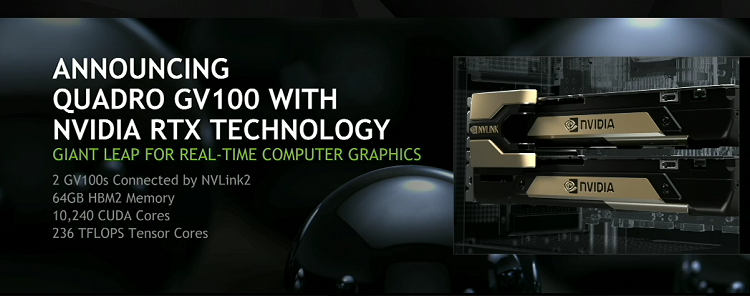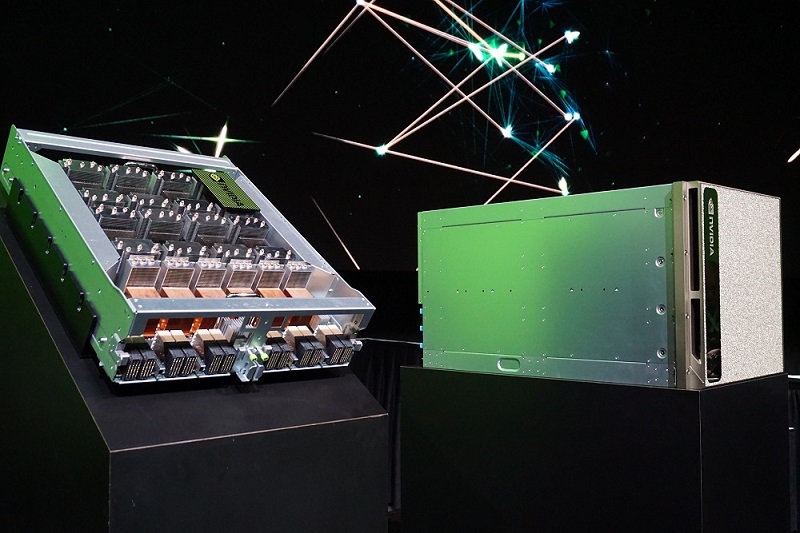No Gaming Focused News from Nvidia at GTC – New GeForce Cards for 2018 Launch?

Back in February, we reported that Nvidia wasn’t going to launch any new GeForce cards at either GDC or their own GTC events. The report suggested that the 2018 GPU Technology Conference would be all about machine learning, AI, and self-driving cars, with no focus on gaming related stuff.
Still, there had been many rumors that promised a launch of next generation GeForce cards at the very event. Even just a few hours before the start of Nvidia’s GTC keynote, reports surfaced that team green was getting ready for the launch of new graphics cards under the GeForce GTX 11 series.
So fans were hoping to hear maybe a little tidbit of news about the new GPU architecture. Unfortunately, that didn’t happen, and all Nvidia had to offer was a new Quadro GV100 designed for workstation and professional users.

The new product is based on the Volta GV100 GPU featuring a total of 5120 CUDA cores, 640 tensor processors and 320 texture units. The Quadro GV100 packs a massive 32GB HBM2 and recommended to be sold as a pair.
Nvidia has also unveiled their DGX-2 supercomputer which is basically a server rack with 16 Tesla V100 cards stacked together using a proprietary interconnect called NVSwitch. This server rack is driven by dual Xeon Platinums and provides 10X the processing power of last year’s DGX-1.
Touted as the “world’s largest GPU,” Nvidia DGX-2 packs a total of 81,920 CUDA Cores with 512 GB HBM2 memory and a 14.4 TB/s aggregate bandwidth. It will cost you $399,000.

In terms of actual gaming-focused news, GTC however had nothing for us. So when should you expect the new GeForce cards to arrive? Well, at least not until the current pricing woes for graphics cards continue. And on that front, GPU prices may finally drop in 2018 thanks to a possible cryptocurrency demand drop.
Last month, Nvidia itself hinted at a Q3 launch for Volta gaming cards. Though rumors suggest that the next-gen cards won’t be based on Volta, but rather a brand-new architecture, codenamed either Ampere or Turing (or both).